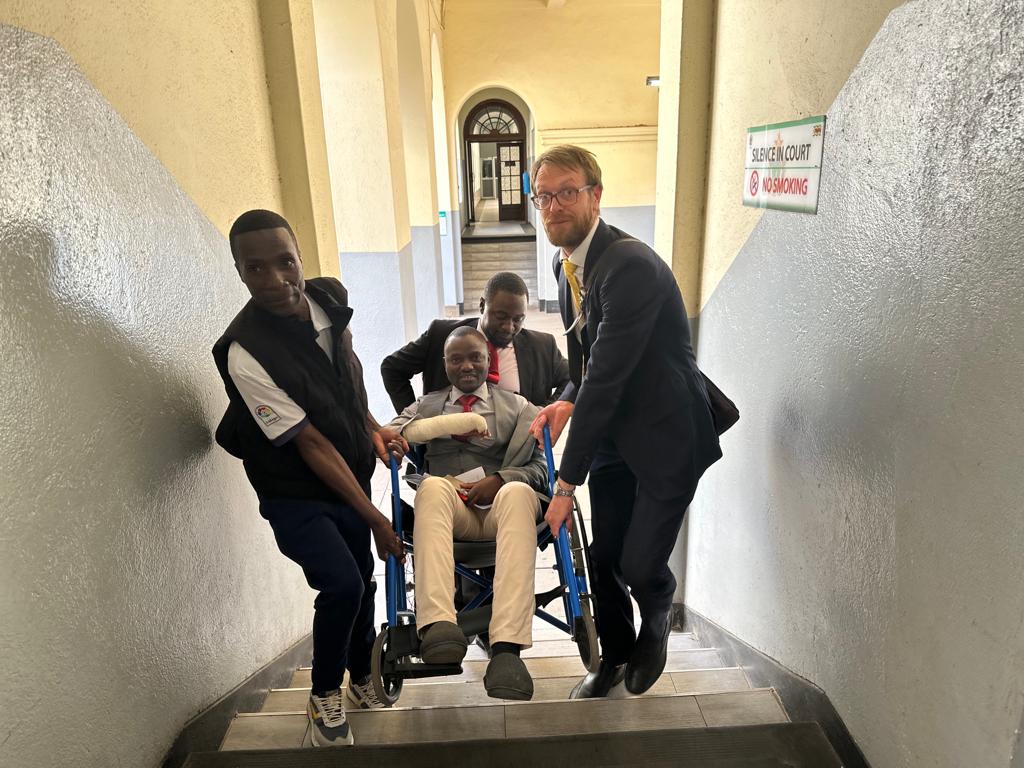By Costa Nkomo
Zimbabwe’s failure to ratify the UN Convention Against Torture and Other Cruel, Inhuman, or Degrading Treatment or Punishment (CAT) starkly highlights its wavering commitment to fundamental human rights and the rule of law.
The CAT, a pillar of international human rights law, unequivocally prohibits all forms of torture and mandates that signatory states prevent, investigate, and prosecute such acts.
Despite the convention’s adoption in 1984 and its entry into force in 1987, Zimbabwe remains absent from the list of nations that have ratified it. This reluctance has serious implications for both the country’s global standing and its domestic legal framework.
Ratifying the CAT would signal Zimbabwe’s adherence to globally accepted human rights standards and its willingness to cooperate with the international community. More importantly, it would reflect a genuine commitment to uphold the new Constitution, which enshrines fundamental human rights, and align Zimbabwe with its obligations under the UN Human Rights Council.
Zimbabwe’s history is rife with documented cases of torture and severe human rights violations, stretching from the early post-independence period to the present day.
This troubling legacy makes the need for Zimbabwe’s accession to the CAT urgent. Ratification would serve as a powerful statement that the government is serious about reform and willing to shed the “pariah” label that has burdened the country for decades.
Recent legal developments have brought this issue to the forefront.
Human rights lawyer Obey Shava, a victim of torture, has filed a High Court application arguing that the government’s failure to ratify the CAT violates the Constitution. Shava, represented by lawyer Tendai Biti, contends that this inaction breaches Articles 56 (equal protection of the law) and 47 (constitutionalism and the rule of law) of Zimbabwe’s Constitution.
In court, Biti argued:”Shava charged that President Mnangagwa’s failure to accede to the Convention Against Torture and Other Cruel, Inhuman or Degrading Treatment or Punishment is a breach of the Constitution and also a violation of his right to equal protection of the law, codified by Section 56 of the Constitution, and a breach of his right to constitutionalism and the rule of law, guaranteed under Section 47.”
In July 2023, Shava sustained serious injuries after he was attacked and left for dead by unknown assailants.
This legal challenge underscores the direct connection between the government’s inaction and the violation of constitutional rights.
Shava’s case is not an isolated incident. The list of state-inflicted torture victims in Zimbabwe is long and deeply tragic. One landmark case is that of democracy activist Jestina Mukoko, who was abducted and tortured in 2008. She was awarded $150 000 in damages by the courts, a belated but important acknowledgment of state culpability.
The fact that the government is now being taken to court over its failure to ratify the CAT reflects a troubling disconnect between its rhetoric and actions. When President Mnangagwa took office in 2017, he promised a new era of democracy and respect for human rights. Yet, the ongoing refusal to ratify this critical convention casts doubt on those promises and raises serious questions about the government’s commitment to reform.
In his inaugural speech on November 24, 2017, President Mnangagwa declared: “Today the Republic of Zimbabwe renews itself. My government will work towards ensuring that the pillars of the state assuring democracy in our land are strengthened and respected.”
Ratifying the CAT is not just a symbolic act; it is a critical step towards ensuring accountability, protecting human rights, and building a legal framework that shields individuals from the horrors of torture. Zimbabwe’s continued refusal to ratify this vital convention sends a disturbing message to the world and undermines its own constitutional obligations.


Zanupf and the rule of law do not see eye to eye, this is enshrined in the party’s Constitution and its idolized at its College of Ideology..